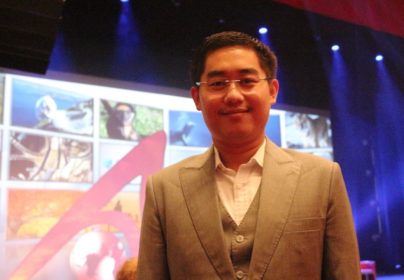
Clark University doctoral candidate Pheakkdey Nguon has been awarded a $40,766 fellowship from the Intergovernmental Panel on Climate Change (IPCC) to fund a year of research of the Reducing Emissions from Deforestation and Degradation (REDD+) program in Cambodia, and a year of dissertation writing at Clark.
Nguon accepted the award from Prince Albert II of Monaco, on Sept. 30 in Monaco. The aim of the IPCC Scholarship Programme is to build capacity in the understanding and management of climate change in developing countries by providing opportunities for young scientists from developing countries to undertake doctoral studies. Scholars are selected by the Prince Albert II of Monaco Foundation, the Cuomo Foundation and the IPCC Science Board.
Nguon’s goal with his research is to study how different groups of stakeholders view the effectiveness of REDD+ in Cambodia — its salience, credibility, and legitimacy in addressing deforestation, degradation, and sustainable livelihood development.
Nguon received a bachelor’s degree in education at the Royal University of Phnom Penh, Cambodia, and graduated in 2009 with a master’s degree in International Development and Environmental Analysis from Monash University, Melbourne, Australia. In an interview with Monash, he mentions that the most rewarding experience since graduation has been the opportunity to work with his doctoral advisory committee at Clark University.
“What I appreciate most from them is their genuine support in the work that I am trying to do as a young researcher,” Nguon said. On this committee are Clark geography professors Anthony Bebbington, Colin Polsky, and Dominik Kulakowski, as well as Diana Liverman, of the University of Arizona.
“To be awarded the IPCC scholarship is a terrific recognition of Pheakkdey,” said Bebbington, who is the director of the Graduate School of Geography and serves as Nguon’s adviser. “While his research on the diverse ways in which stakeholders respond to REDD programs is focused on Cambodia, this award is one more indication that the relevance of his work stretches way beyond his home country.”
According to an interview the International Institute for Applied Systems Analysis (IIASA) conducted for their blog, Nguon will be studying literature on “sustainability science and political economy of institutions and decisions literature to reveal ways in which perceptions, institutional locations, and contextual differences affect patterns of stakeholders’ engagement in REDD+.” His research methods will include informant interviews, observations, and archival research.
Nguon has had other recent successes. In 2012, he was awarded the Fulbright South East Asia Grant and was an IIASA Annual Fund recipient. After successfully defending his thesis proposal, one of his dissertation papers was selected for publication in Environmental Science and Policy. His research has been supported in part by the Albert, Norma and Howard Geller ’77 Endowed Research Awards for Projects Relating to Sustainability.
Established in 1921, the Graduate School of Geography at Clark University is internationally renowned for innovative scholarship and is an acknowledged leader in the field. Consistently ranked as one of the top-ten graduate programs by the National Research Council, Clark Geography enables graduate students to train with top professionals and participate in a world-class research community. Furthermore, having awarded more Ph.D.s than any other geography program in the United States, Clark University Geography has a reputation for training future leaders in the field.
Founded in 1887 in Worcester, Massachusetts, Clark University is a small, liberal arts-based research university addressing social and human imperatives on a global scale. Nationally renowned as a college that changes lives, Clark is emerging as a transformative force in higher education today. LEEP (Liberal Education and Effective Practice) is Clark’s pioneering model of education that combines a robust liberal arts curriculum with life-changing world and workplace experiences. Clark’s faculty and students work across boundaries to develop solutions to complex challenges in the natural sciences, psychology, geography, management, urban education, Holocaust and genocide studies, environmental studies, and international development and social change. The Clark educational experience embodies the University’s motto: Challenge convention. Change our world.
